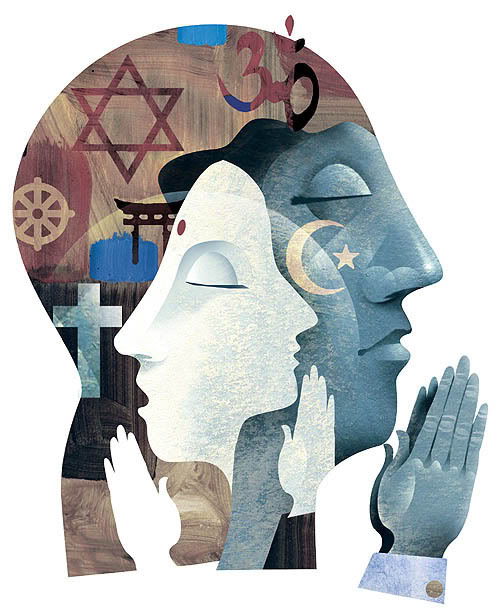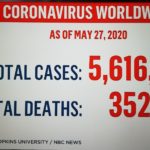By Anthony DeSantis
The first day of school. I told my teacher, Mrs. Beckman, that I wanted to grow up to become a doctor. She said it was easy to follow my dreams. I only had to finish my homework every night, make straight A’s, and never pull a feather. Feathers were three laminated pieces of colored paper that Indian Trace Elementary used to discipline students. They didn’t beat the children with the feathers. Instead, feather charts on the walls of every classroom had every student’s name paired with a pocket that held the three feathers. Students that misbehaved were sent to the chart to pull a feather—first the green one, followed by the yellow one, and then finally the red one. Worse than any beating, feathers represented failure.
Pop culture. I didn’t care about it back then. The first film in the Lord of the Rings series was released over winter break, but I wouldn’t see it for another three years. I didn’t watch the Ravens win the Superbowl. My sister cried when Aaliyah was killed in a plane crash, and I didn’t even know who she was. I thought plane crashes only happened in movies.
Ariel Kujack. The other boys teased her because she was taller than Mrs. Beckman, but I thought she was a goddess. Her light blue eyes seemed out of place surrounded by the caramel color of her skin. Her hair reached below her waist, a rush of thick brown color, straightened to give the illusion that it could be tamed. Ariel’s best feature, though, was her barely noticeable lisp. Words like “secondly” and “seventeen” took my breath away.
My leg cramps. My orthopedist had the strongest hands. I eased my left leg into his grip and let him rub until he could stop the pain. The cramps followed me into first grade from the year before. My parents ran me around Fort Lauderdale, and we went to any doctors they could afford. I now dangled my legs over the edge of this particular examination table. The orthopedist glanced over me as he scrunched his face. He prescribed me a pair of arch-supporting insoles for my shoes. They made me limp when I walked.
Señora Casellas. This was the same year that the School Board of Broward County decided to cut budgets for Spanish classes. Logically, if so many people in South Florida spoke it already, it was wasteful to teach Spanish. This not only relieved me, but the few others at school that couldn’t speak the language. We no longer had to deal with Señora Casellas. Rumors said that she was a robot and inserted a Spanish-language disc into the back of her neck before she taught a class. Either way, I would miss her hand puppets, especially Ricardo the Talking Toucan.
Being a teacher’s pet. I didn’t misbehave and I did my homework every night. It delighted Mrs. Beckman to offer me the job of classroom clean-up duty. She convinced me that it would help me prepare to be a doctor. While the rest of the class ate lunch in the cafeteria, I picked two other students each day to help me tidy the classroom and then go to recess with everyone else. I had less time for recess but I didn’t care. In exchange I controlled classroom clean-up duty and could be in the classroom unsupervised. I felt important because the rules seemed to bend for me.
Not existing. For most of the year, I prayed every night that Ariel Kujack would actually know my name. I think she eventually did. After that, whenever I walked by her and her friends, they began to whisper.
Shoelaces. I couldn’t bear to walk with a limp so I started to take my shoes off when I got to school each morning. I removed the insoles and crammed them into my book bag. Getting back into the shoes was the problem. I still couldn’t tie my shoelaces in the first grade. I asked Mrs. Beckman to tie them once, and she just laughed. I looked ridiculous that day, as I trudged through the playground’s sand with untied shoelaces. My classmates encouraged me to do something about my shoes. I lied and said, “I will in a second.” By tucking the laces into the sides of my dirty sneakers, I thought I had solved the problem for good. I would never have to learn.
Spanish Lesson. A woman with a thick Spanish accent took our order at the drive-thru lane of McDonald’s. My mom and I only wanted two medium cokes and worked hard to decipher what the woman’s voice on the speaker wanted us to do. When we pulled around to the window, she gave us two bags of cookies. “No, cokes. Like Coca-Cola,” my mom said. “Coke-ies,” the woman replied. We didn’t worry about getting our money back. We just drove away.
Racism. My parents taught me to share with others regardless of skin color. But when the older kids in the neighborhood started to borrow my toys and give them back broken, or not give them back at all, my parents gave me permission to stop sharing. Most of the other kids in the neighborhood were from Cuba and South America. They accused my family of racism.
Mrs. Laskin. The principal at the private school where my mom taught was a jovial lady. Heavyset with a good sense of humor, she lit up any room. I especially loved going out to eat with her, which we did frequently when I was in first grade. We went out to celebrate when Mrs. Beckman put me in charge of classroom clean-up duty. Everyone congratulated me, but as always, conversation surrounded what doctors said about my leg cramps. Those same doctors told Mrs. Laskin something different about her son, Jonathan, and the leg cramps he had. She wanted a second opinion.
September 11th. Though I never talked to her, I did hold Ariel Kujack’s hand once. Mrs. Beckman stopped teaching our class early that morning to make us watch the news. The images were, and remain, indescribable. By the time the second plane hit the South Tower and convinced the World that America was under attack, Ariel’s fingers were wrapped around mine. All we could do was wait. My friend’s parents picked my sister and me up with their children, but for a moment, I didn’t want to leave.
When I pulled my first two feathers. While I rearranged the bookshelves in Mrs. Beckman’s classroom one day, a lady from the front office’s voice sounded off over the intercom. “Mrs. Beckman?” she asked. The other two classmates on clean-up duty with me were afraid to answer, and I was in charge. So I answered, “She isn’t in the room right now. Can I take your message?” The voice on the intercom asked me where my teacher was and I explained that she was probably on the way to recess. The lady said she’d call back later. I ran to the playground to tell Mrs. Beckman.
“And you answered?” she asked me. It would be years before I found out how I made her look like a terrible employee for leaving children in her classroom unattended. She slapped her hand onto my shoulder before I could answer and shouted, “Sit your butt down, Anthony, and when we get back to class you’re not just pulling one feather, but two.” I went home and wept.
Bullies. The children that called me racist grew up to be teenagers sitting on a rooftop that called me fat. I rode my scooter from one end of the cul-de-sac to another, and they called me a different name with each time I passed by their house. Tubby Tony was always my least favorite. I could smell their cigarettes from where I was. I said if they didn’t stop, I’d tell their parents that they were smoking. I knew that their parents were the ones who gave them the cigarettes in the first place.
When I pulled my third feather. I pulled my first red feather because I didn’t finish my math homework one day. First grade was the year that math homework became a nightly battle with my parents. Some of these fights ended in shards of broken coffee mugs on the floor or gashes in the kitchen wall from household objects flung across the room. My cramps always worsened during these fights. Whenever my leg started to writhe in pain, I had no choice but to surrender and say how sorry I was. That’s when my mom held me close to her and we both cried.
Good employees. My mom told me that when I was in first grade, she’d finish teaching and hide in Mrs. Laskin’s office to weep. Mrs. Laskin cried too. The symptoms of their sons were so similar, but the doctors would tell them different things. Mrs. Laskin and my mom were eventually courageous enough to admit cancer was a logical explanation for the pain. Before my mom left the office, Mrs. Laskin made her promise to tell her what the doctors say after my MRI.
MRIs. My leg hurt worse than ever, and even though I didn’t know it, people were now worried. The MRIs felt so much like science fiction. After I remained perfectly still in a bed under the lights and the scanners for half an hour, however, I was relieved to be able to get up. At Joe DiMaggio’s Children’s Hospital, the computers could turn the images of my skeleton different colors, and I asked to see them in every single one. The technician was a solemn woman, happy to oblige.
Death. I didn’t go to school the day of Jonathan Laskin’s memorial. Mrs. Beckman was probably angry, but my family had to help Mrs. Laskin prepare. We could have done more after all the help she gave us. She forced my mom to send me for MRIs until we were certain nothing was wrong with me. Our pain was so similar, Jonathan and mine. But Jonathan had rhabdomyosarcoma, a skeletal cancer found in young children, and I had growing pains. I never met him, and I still wept for Jonathan at his memorial service.
Lipstick. Once, I tried to use West Nile Virus as an excuse to evade Mrs. Beckman—even if only for a day. Any time I listened to the news with my parents or in school, everyone talked about the disease, so I figured the plan was infallible. My parents still made me get out of bed and take a shower that morning. I got dressed, and as I dramatized my illness the entire time, my mom bent down and gave my stomach one brief peck of her lips. I glanced at the traces of burgundy she left on my skin. She told me how now I’d have her with me the whole day at school.
_________________________
Anthony DeSantis is a junior in the Creative Writing Department at the
South Carolina Governor’s School for the Arts and Humanities. He writes
largely to examine things from a variety of perspectives. Nothing is
more important to him than influencing a person’s thoughts and feelings
through what he writes. Along sidehis passion of writing, though,
Anthony loves to study theatre and foreign languages. His infatuation
with Spanish language and culture began while he was growing up in South
Florida. Anthony feels that this childhood has provided writing material
for years to come.









